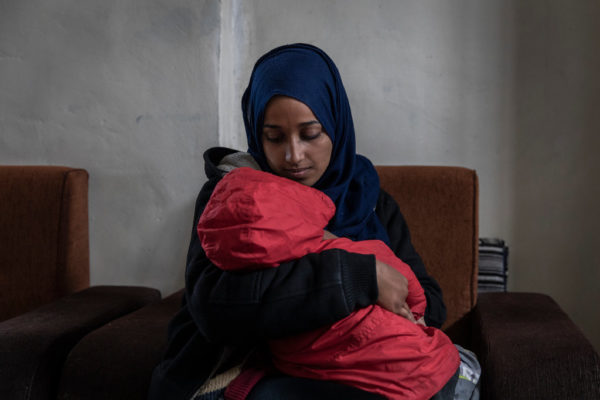
President Trump said Wednesday the United States would not re-admit an American-born woman who traveled to Syria to join the Islamic State and now wants to come home.
The woman, Hoda Muthana, does not qualify for citizenship and has no legal basis to return to the country, Secretary of State Mike Pompeo said.
In 2014, Ms. Muthana, then a 20-year-old student in Alabama, traveled to Turkey, hiding her plans from her family. She told them she was heading to a university event.
In fact she was smuggled into Syria, where she met up with the Islamic State and began urging attacks in the West.
Now, with the militant group driven out of Syria, Ms. Muthana says she is deeply sorry, but American officials appeared intent on closing the door to her return.
Mr. Trump said in a post on Twitter that he had directed the secretary of state “not to allow Hoda Muthana back into the Country!”
Mr. Pompeo issued a statement declaring that she “is not a U.S. citizen and will not be admitted into the United States.”
Mr. Pompeo said Ms. Muthana did not have “any legal basis, no valid U.S. passport, no right to a passport, nor any visa to travel to the United States.”
Ms. Muthana says she applied for and received a United States passport before leaving for Turkey. And she was born in the United States — ordinarily a guarantee of citizenship.
Mr. Pompeo’s statement did not offer a rationale for why the State Department does not consider Ms. Muthana a citizen. But American officials seem to be hinging their argument against allowing her back in on an exception in the law.
Ms. Muthana’s father was a Yemeni diplomat, and children born in the United States to active diplomats are not bestowed birthright citizenship, since diplomats are under the jurisdiction of their home countries.
That law does not apply in Ms. Muthana’s case, said Charlie Swift, the director of the Constitutional Law Center for Muslims in America, who is representing her family. Ms. Muthana, he said, was born a month after her father was discharged from his position as a United Nations diplomat.
After she joined the Islamic State, Mr. Swift said, Ms. Muthana’s family received a letter indicating that her passport had been revoked. Her father sent the government evidence of his nondiplomatic status at the time of his daughter’s birth, but did not receive a response.
Mr. Swift said Ms. Muthana had in fact been issued two American passports: one when she was a child, and a renewal she applied for herself just before leaving for Syria. In the case of the first, he says that her father provided a letter from the United Nations proving that he had been discharged, to overcome the jurisdictional challenge.
Hassan Shibly, a lawyer with the Council on American-Islamic Relations Florida who is advising the family, provided a birth certificate for Ms. Muthana that showed she was born in Hackensack, N.J., on Oct. 28, 1994.
Mr. Shibly said that her father left the foreign service in June 1994. He later sent a photograph of a document, on the letterhead of the United States Mission to the United Nations and signed by one of its representatives in 2004, that dated the official end of his service to Sept. 1, 1994. Ms. Muthana, Mr. Shibly said, “is trying to turn herself in to federal authorities and face consequences for her actions.”
NY TIMES

Leave a Reply
You must be logged in to post a comment.